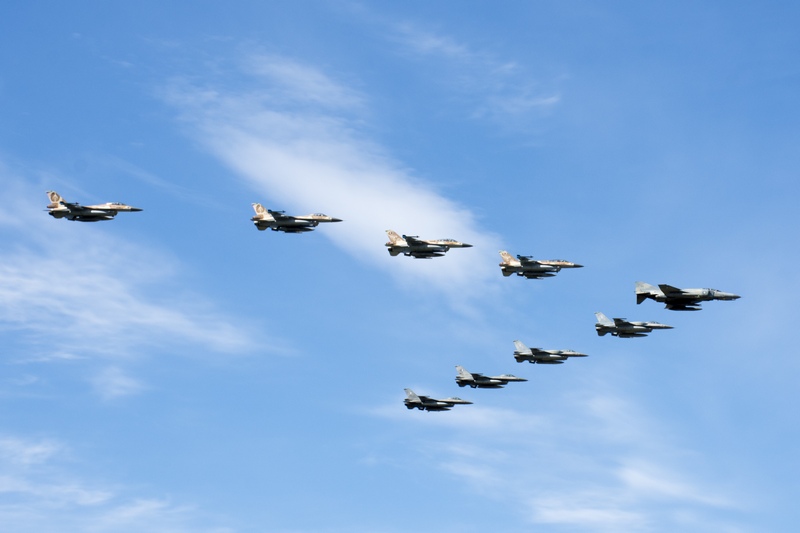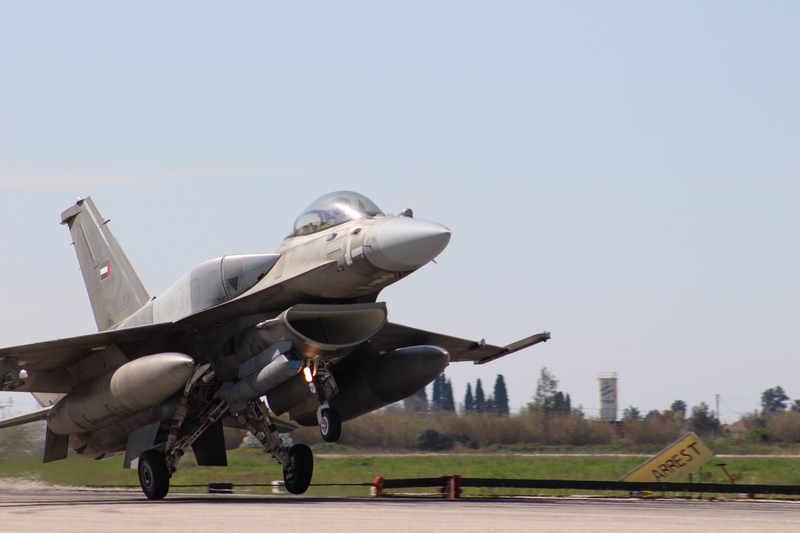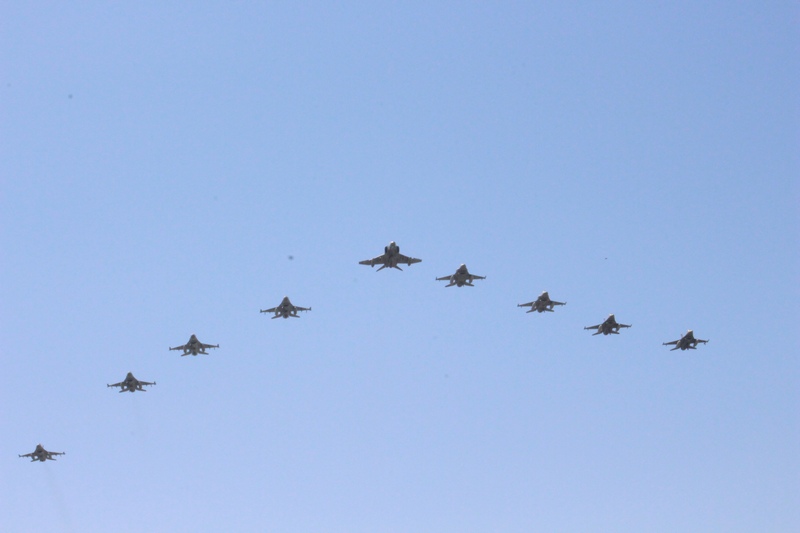Sourced : Hurriyet
By Micha’el Tanchum (Fellow at the Energy Policy Research Center at Bilkent University, Ankara, Turkey).
Combat pilots from United Arab Emirates (UAE) are making history by flying alongside their Israeli counterparts in a joint air force exercise hosted by Greece. While the UAE and Israel have no formal diplomatic ties, the event is a stunning confirmation the often rumored developing relations between the two states.
The UAE’s participation in joint exercises with Greece and Israel is just one sign of Abu Dhabi’s expanding involvement in the Eastern Mediterranean. Because of its strong strategic partnership with Egypt, the UAE’s new presence in the Eastern Mediterranean serves to bolster Cairo’s regional role, impacting Turkey’s own regional energy diplomacy and its options concerning the Cyprus issue.
On March 27, the Hellenic Air force began hosting Iniohos 2017, an 11-day, multi-national joint air force exercise. While including the United States and Italy, the UAE and Israel’s participation in the complex air operations is noteworthy. Last week, Israel and Greece formally renewed their military relations, expanding upon their 2015 milestone of signing a status of forces agreement (SOFA). Israel does not maintain a SOFA with any other nation aside from the United States. Israel’s participation in Iniohos 2017 reflects the new effort by Greece and Israel to promote deeper air force cooperation.
The UAE’s participation in Greece’s multi-national joint air force exercise with Israel is part of a wider UAE effort to deepen its strategic ties with key Eastern Mediterranean states. Concurrent with Iniohos 17, the UAE is hosting a major joint military exercise with Egypt. The joint exercise named Zayed 2 includes ground, naval, and air forces from the two nations, as well as marine units drilling beach landing operations.
Earlier this March, Egypt and Israel each conducted joint exercises with Republic of Cyprus. For its part, the UAE has raised the level of its diplomatic relations with the Greek Cypriot government and has assumed a significant role in the Cypriot economy. Only eight months ago, the UAE opened an embassy in the Republic of Cyprus (ROC). The diplomatic breakthrough followed Nicosia’s awarding two concession agreements to the UAE’s marine terminals company, DP World, for Cyprus’ Limassol port.
The UAE is also seeking a role in the development of Cyprus’ offshore natural gas industry. The ROC has already agreed to transport gas to Egypt from its Aphrodite natural gas field in Block 12 of Cyprus’ exclusive economic zone. Cyprus’ Block 11 is situated just 6 km from Egypt’s massive Zohr natural gas field discovered in 2015 by the Italian energy giant Eni. Block 11’s geological similarities with Zohr indicate the possibility of significant natural gas deposits. On March 7, 2017, the French energy major Total sold 50 percent of its stake in Block 11 to Eni increasing the likelihood that drilling will commence in June despite warnings from the Turkish Republic of North Cyprus and Turkey to the ROC to refrain from taking further unilateral action with regard to the island’s hydrocarbon resources.
For Cairo, Cypriot gas supplies are critical to turning Egypt into the Eastern Mediterranean region’s clearinghouse for the export of natural gas. Supplies from Cyprus combined with supplies from Israel and/or new finds off Egypt’s coast could supply Egypt’s now dormant liquefied natural gas (LNG) plants, transforming Egypt into a major transport node for the export of natural gas to Europe.
Parallel to Turkey’s relations with Israel, Turkey had frosty relations with the UAE until 2016, when reconciliation was formalized during Foreign Minister Mevlüt Çavuşoğlu’s visit to Abu Dhabi and the subsequent return of the UAE’s ambassador to Ankara. It would behoove all the nations of the Eastern Mediterranean to devise a comprehensive region-wide arrangement for natural gas exports that would include equitable terms for Turkish Cypriots and an export role for Turkey via the Trans-Anatolian Natural Gas Pipeline. As it succeeded in doing with Israel, Ankara might encourage the UAE to play a constructive role toward this end through deeper engagement with Abu Dhabi.



